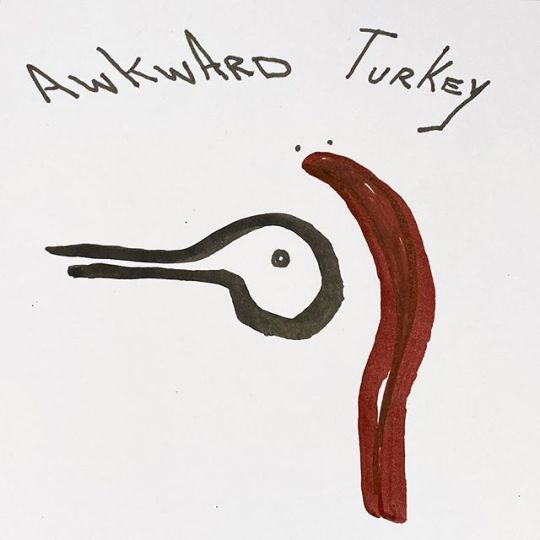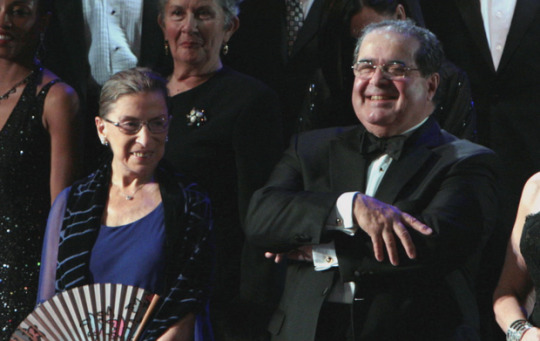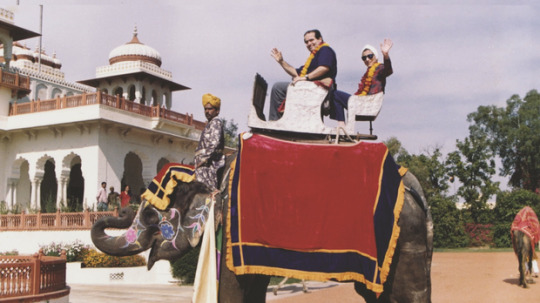#awkwardturkey
Photo

#awkwardturkey The result when one person tries to give another a high-5, but the other person tries to give a fist bump. Once these two hand gestures meet, they form a turkey at a really awkward moment. person 1: "Dude, we just made an awkward turkey!" person 2: "Well, this is awkward." #drawing #drawingaday #wordaday #newwordaday #newword #newwords2019 #newwords2020 #word #art #words Drawing 75. https://ift.tt/2QDDiPw
5 notes
·
View notes
Text
Awkward Turkey


The workshop project was to make “high five gloves” that light up an LED using conductive threading and fabrics. A circuit is complete only after two people high five each other. I placed the fabric such that only an awkward turkey could light up the LED.
0 notes
Photo


Awkward Turkey
Nine Reasons to Talk Politics at Thanksgiving
9. Civil discussion is an essential U.S. tradition. This country has an embattled but impressive tradition of holding difficult conversations, respecting people who hold opposing positions, seeking common interests, and negotiating compromise. Though not much apparent in Congress these days, not long ago Republican and Democratic legislators used to share meals and long conversations. (This was back when Congress, you know, did stuff.) Pictured above, Supreme Court Justices Ruth Bader Ginsburg and the late Antonin Scalia were famously “best buddies” (as Ginsburg put it), despite diametric opposition on many issues. These two brilliant bulwarks of the left and right, respectively, vacationed together, attended the opera, and shared New Year’s Eves together with their families.
8. Face-to-face is better than face-to-Facebook. Social media has been hard for me to look at for months—not just because of fake news stories. It's too easy to fixate on one comment or shared video and keep asking, “How could they believe that?” The phenomenon sometimes called online disinhibition effect means that we all have an easier time posting nonsense than saying it to a real person whose reactions we can perceive in real time. I recently faced someone who had posted comments in the run-up to the election that I found pretty aggressive and insensitive; frankly, I wasn’t looking forward to the encounter. In person, however, he couldn’t have been kinder or more conciliatory.
7. Talking politics only with like-minded people makes us more extreme. Much has been written and said about the danger of our individual “echo chambers,” which tend to confirm our own biases about the world (such as “There’s no way Trump can win!”). That’s bad enough, but worse is that when we don’t engage with other viewpoints, it’s easy to slip into the perception that ours is the only way to see the world, as legal scholar Cass Sunstein explains:
Suppose, for example, that you think an increase in the minimum wage is a sensational idea, that the nuclear deal with Iran is a mistake, that Obamacare is working well, that Donald Trump would be a fine president, or that the problem of climate change is greatly overstated. Arriving at these judgments on your own, you might well hold them tentatively and with a fair degree of humility. But after you learn that a lot of people agree with you, you are likely to end up with much greater certainty — and perhaps real disdain for people who do not see things as you do.
6. US vs. THEM does not permit a focus on solutions. Like kids at summer camp, our country has been divided into Blue and Red teams. US vs. THEM is a great strategy for TV ratings, advertising clicks, and recruiting angry people to fringe cults. It’s not great for society, however, which is actually composed of individuals who often hold nuanced, complicated views. Painting people with a broad brush diminishes everyone's humanity. As Jon Stewart observed recently, it’s hypocritical to insist that Muslims cannot be treated as a monolith, but Trump voters can. In fact, many people who voted for Trump were mainly scared of low wages and high insurance premiums—not people who are different from them. Likewise, many people who voted for Clinton were skeptical of her secretive tendencies and establishment ties, including her relationships with Wall Street and the DNC. Rigid team affiliations are best saved for the football game. Real life involves individuals, and real political solutions will involve listening to what they have to say.
5. You can set ground rules. Talking politics doesn’t need to be a free-for-all, like that time your drunk uncle threw that crock of oyster stuffing at the wall. If you want to have the potential of learning something, don’t turn a conversation into a competition where you’re trying to prove the other person wrong. Risking the possibility of changing one's mind makes most people feel very vulnerable—which is why we tend not to do it. Here are some ground rules to consider:
Agree to the respectful, civil purpose of seeking to understand another person’s point of view.
No name-calling or ad hominem attacks (like “Crooked Hillary” or “basket of deplorables”). Focus on issues, rather than the personal characteristics of the person(s) presenting them.
Listen carefully. While someone else is speaking, resist the urge to judge, or to think of what you will say in response.
Watch tone. There’s a big difference between “How do you know?” and “How do you know?”
Only one person can get angry at a time.
4. You can choose with whom and where to talk. If you know your mother-in-law may actually have a heart attack, maybe you avoid controversial topics at dinner. But that doesn’t mean you can't pose a good-natured question to her son at cocktail hour.
3. You can learn what you actually want to know. Choose your question carefully, because you may only get one. Here are some things I’m generally curious about:
What issue was most important to you in the election?
What are your hopes for and concerns about the Trump Administration?
Where do you go to find out about issues? What leads you to trust your sources?
2. We become a model for for those little citizens at the kids table. Where else are kids going to learn how to discuss difficult issues? Respectful conversation makes terrible television. Social media has many images of cats wearing toast, but few popular videos of people having reasonable conversations because slowing down to listen and think is not highly entertaining. Nor, unfortunately, are kids likely to develop this skill set at school. As an educator and consultant, I push hard for teachers and administrators to develop skills for civil discourse, but schools often shy away from controversial topics lest they alienate certain groups of stakeholders or become susceptible to the charge of indoctrinating students. Imagine the future that would be possible if kids learned how to talk about things that are hard to talk about.
1. We are the people we’ve been waiting for. Letting politicians and media frame debate cedes our basic identity as democratic citizens. Who knows what ideas we could come up with if we risked listening and speaking reasonably?
[Formal photo from Getty Images. Elephant photo from Justice Ginsburg’s office.]
#awkwardturkey#politics#thanksgiving#civil discourse#Argumentation#argument#discussion#let's discuss#listening
0 notes